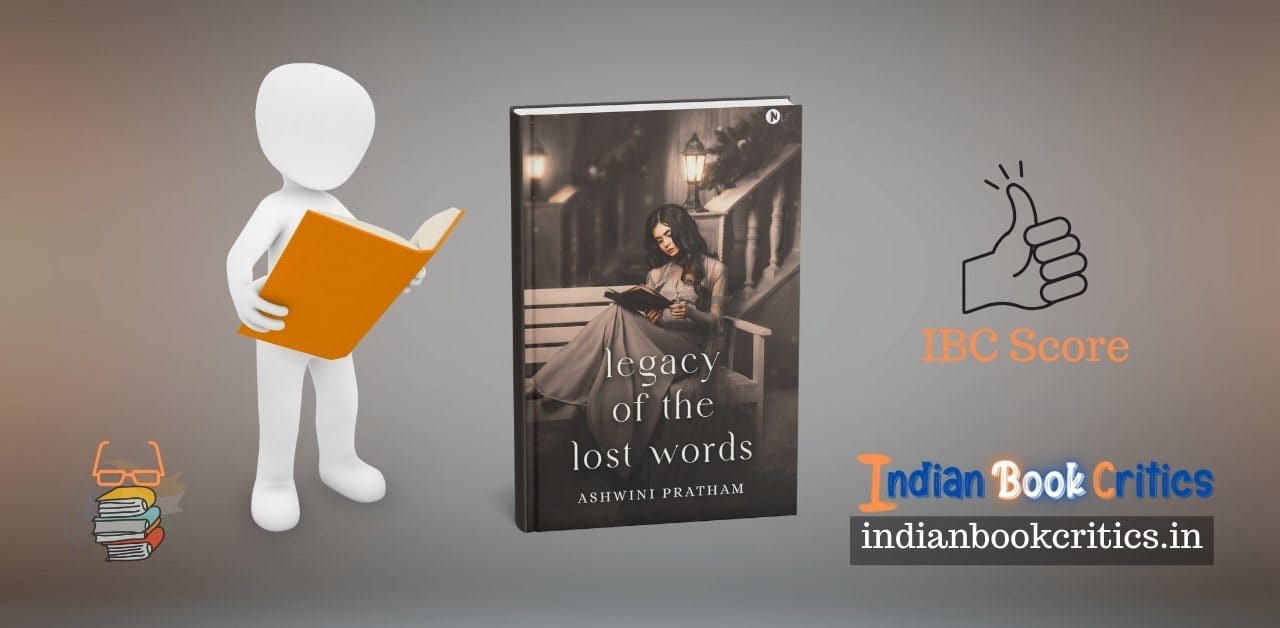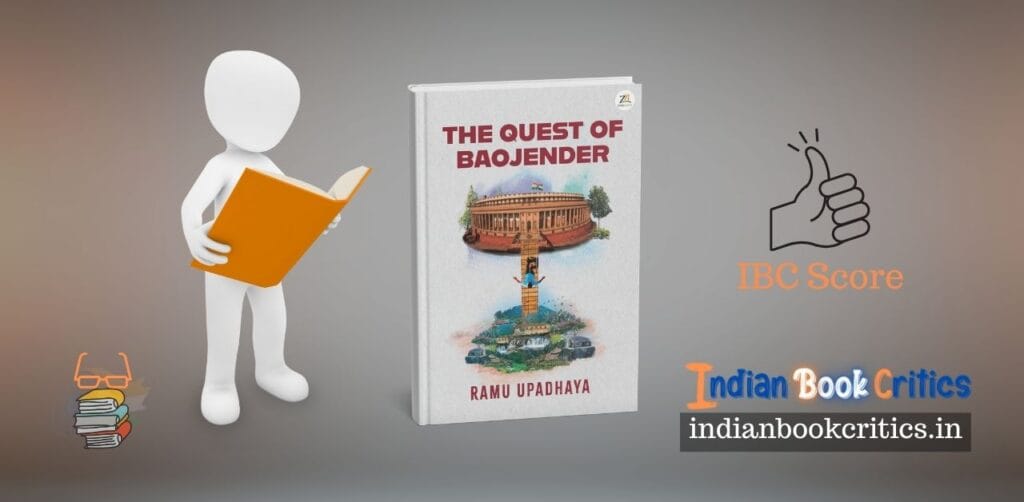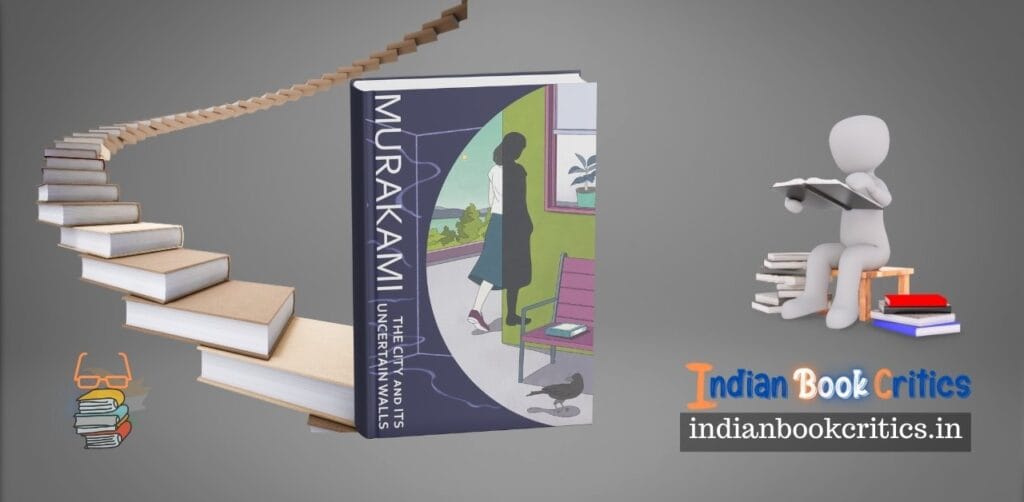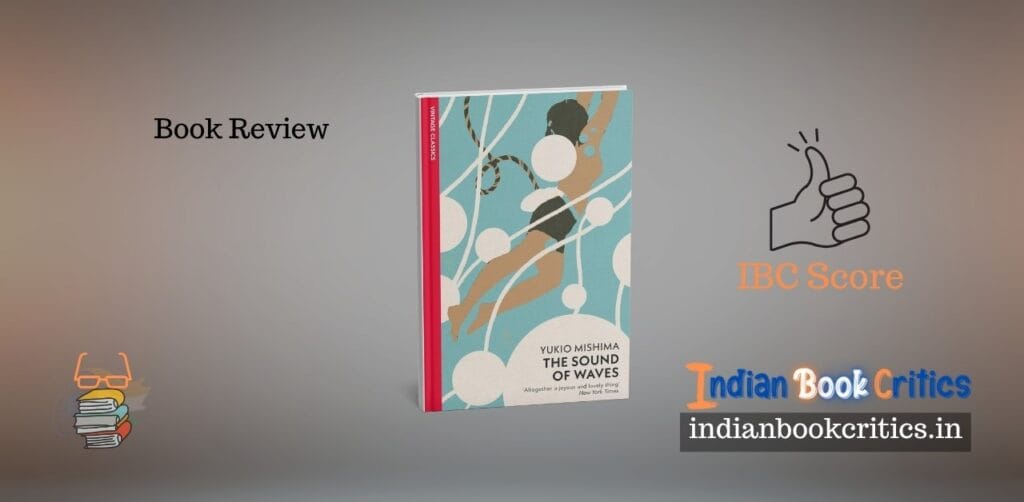Ashwini Pratham’s Legacy of the Lost Words is an enlightening and revealing journey of love, loss, and redemption, weaving together the past and present in a narrative that resonates with quiet power. Blending the emotional depth of a family saga with the intrigue of historical fiction, Ashwini crafts a story that is as much about unearthing buried truths as it is about the resilience of the human spirit. Through dual timelines—one tracing a grandmother’s clandestine romance in rural India, the other her granddaughter’s quest to decode her legacy—the novel explores how silence and sacrifice ripple across generations. With its evocative prose, richly drawn characters, and poignant exploration of societal constraints, Legacy of the Lost Words is a testament to the enduring power of love and the stories we dare not speak.
A Journey Through Time: Uncovering Hidden Truths
At the novel’s heart is Aanya, a freelance writer grappling with her grandmother’s death, Savitri. When she discovers Savitri’s diary—a fragile relic filled with fragmented memories and unsent letters—Aanya embarks on a journey to her ancestral village, Nandipur, to piece together the life her grandmother shrouded in secrecy. What begins as a personal quest soon becomes a reckoning with her family’s past, as Aanya uncovers a love story thwarted by caste, tradition, and betrayal.
Pratham skillfully interlaces Aanya’s present-day investigation with Savitri’s diary entries, creating a narrative that pulses with urgency. The diary’s pages, yellowed with time, reveal Savitri’s clandestine meetings with Dev under the sprawling banyan tree, their dreams of eloping to Kolkata, and the abrupt shattering of their plans. These entries are not mere recollections but visceral fragments of a life half-lived:
“We met where roots embraced the earth and branches touched the sky—our sanctuary, our rebellion. But even the banyan could not shield us from the storm.”
The banyan tree, a recurring symbol, becomes a metaphor for Savitri and Dev’s love: ancient, enduring, yet constrained by the very soil that nourishes it. Its gnarled roots mirror the societal structures that bind Savitri, while its canopy represents the fleeting freedom she finds in Dev’s arms.
Savitri and Dev: A Love Forbidden, A Legacy Unraveled
Savitri’s character is a masterclass in quiet strength. As a young woman in 1950s Nandipur, she is both a product of her time and a rebel against it. Her love for Dev—a man of lower caste but higher intellect—defies the rigid hierarchies of her village. Pratham paints their romance with aching tenderness, contrasting Dev’s poetic idealism (“I want to write verses that move mountains”) with Savitri’s pragmatic resolve. Their relationship, however, is doomed not by a lack of passion but by the suffocating grip of familial duty and societal judgment.
Dev’s disappearance, orchestrated by his own family to protect their standing, is a chilling reminder of the era’s brutal pragmatism. Inspector Deshmukh, a retired officer with his regrets, reveals the grim truth:
“They called it honor. I call it murder.”
Yet Dev’s absence becomes a haunting presence. His letters, discovered in a hidden alcove of his decaying haveli, expose a man torn between love and sacrifice. In one poignant passage, he writes:
“I left to spare you the weight of my name, but my heart remains beneath the banyan, where yours still beats.”
The author makes a daring move. She avoids romanticising Dev’s martyrdom. Instead, she portrays him as a man whose artistry and sensitivity make him ill-suited for the world he inhabits—a world where love is transactional, and legacy is measured in land and lineage.
Aanya’s Odyssey: Bridging Past and Present
Aanya’s journey mirrors her grandmother’s in its quiet defiance. Where Savitri was silenced, Aanya is determined to speak. Her collaboration with Rohan—a neighbour whose steady presence becomes an anchor—adds layers to the narrative. Rohan is no mere sidekick; his sketches and journal entries parallel Dev’s artistic leanings, creating a generational echo that underscores the novel’s themes.
In Nandipur, Aanya confronts the ghosts of her family’s complicity. Her uncle Neeraj, once Savitri’s fiercest opponent, emerges as a tragic figure whose rigid adherence to tradition masks his regrets. The discovery of a locked box in Dev’s haveli—containing records of surveillance and a final letter—forces Aanya to reconcile her grandmother’s stoicism with the raw anguish of her writings:
“She wore her silence like armor, but the diary cracks it open, revealing the wounds beneath.”
Pratham’s portrayal of village life is immersive, blending sensory details—the scent of jasmine mingling with woodsmoke, the cacophony of monsoon rains—with incisive social commentary. Nandipur is not a nostalgic idyll but a microcosm of India’s caste dynamics, where honour is both a shield and a weapon.
Themes: Silence, Sacrifice, and the Weight of Legacy
The novel’s title, Legacy of the Lost Words, speaks to its central preoccupation: the stories we bury and those we resurrect. Fragmented and frayed, Savitri’s diary becomes a palimpsest of lost voices. Her decision to marry Rajesh—a man chosen by her family—is not resignation but a calculated act of survival, a theme Pratham explores with nuance.
The interplay between silence and speech is mirrored in the novel’s structure. Savitri’s diary entries are interspersed with Aanya’s first-person narrative, creating a dialogue across decades. This duality reaches its apex in the discovery of Dev’s final letter, where he confesses:
“I chose exile over erasure, hoping my silence would grant you peace.”
Yet Ashwini argues that silence is not peace but a deferred reckoning. Aanya’s act of writing her grandmother’s story becomes an act of liberation, challenging the notion that some truths are best left buried.
Writing Style: Lyrical and Layered
The debut novelist’s prose is both lyrical and precise, evoking the lush landscapes of Nandipur and the claustrophobic corridors of familial expectation. Her descriptions are tactile—readers can feel the rough texture of Savitri’s diary, taste the bitterness of neem leaves, and hear the whispers of the banyan leaves.
The novel’s emotional core lies in exploring “quiet resilience.” Savitri’s strength is not in defiance but in endurance, a theme encapsulated in her diary’s final poem:
“I watered my grief with tears, / Yet from that soil, a garden grew.”
Ashwini Pratham’s use of metaphor extends to the haveli itself, a crumbling edifice symbolising rigid traditions. Its hidden rooms and locked boxes mirror the secrets festering within the family.
Conclusion: A Legacy Reclaimed
In its closing chapters, Legacy of the Lost Words transcends tragedy. Aanya’s reconciliation with her mother, Meera—a woman shaped by her own unspoken grief—is a masterstroke of emotional writing. The revelation that Savitri’s “sacrifice” was not for family honour but for her descendants’ freedom reframes the narrative, transforming it into a story of intergenerational healing.
The novel’s epilogue, where Aanya and Rohan commit to living “without the weight of silence,” is both hopeful and haunting. Pratham leaves readers with a lingering question: How many stories remain lost beneath the banyan trees of our lives?
Lovers of romance genre, contemporary fiction and family sagas will find much to cherish here, as will readers drawn to lyrical prose and nuanced explorations of cultural identity. Fans of authors like Jhumpa Lahiri and Celeste Ng will appreciate Ashwini Pratham’s ability to balance intimacy with social critique.
Final Verdict: Legacy of the Lost Words is a triumph—a novel that honours the whispers of the past while urging us to speak our truths. Ashwini Pratham has penned not just a story but an heirloom.
Rating: ★★★★★ (5/5)
ISBN: Paperback 979-8-89610-681-4 | Hardcase 979-8-89699-319-3
To put my keys to rest today, let me end the review with these words of recommendation. Legacy of the Lost Words is essential for readers seeking a tale where love defies time and truth triumphs over silence. Like the banyan’s roots, its pages will cling to your soul long after the final chapter.
Get a copy from Amazon India – click here.
Review by Ashish for Indian Book Critics
–.–
Legacy of the Lost Words by Ashwini Pratham, a detailed review
- IBC Critical Rating
Summary
It is a story that discovers a hidden story… a love story that takes the readers into the secret closets of the past. Ashwini’s debut novel exhibits a promising storyteller’s resolve and a clever craft of fiction. If you like reading contemporary fiction with a sensible composure, read the book.




